2021 drew to a fairly quiet close from an HE policy point of view – with all the excitement saved for the new year, as the government focuses on other things (which might well also be very present concerns in the new year too). This is our last (planned) policy update for 2021, so we look forward to seeing you after the break.
The festive period is usually a time for much speculation and opinion as various people set out their “what I would like to be different in the New Year” thoughts in the press, a bit like new year’s resolutions for other people, and the rumour mill can get a bit carried away if there isn’t enough real news and people have time on their hands. So don’t believe everything you read over the holiday. We predict a slow start in the new year for HE policy changes although it may be a big year when it gets going. Although here’s what we said this time last year:
- …it is already clear that 2021 is going to be an important year in terms of tougher rules and interventions from the OfS driven by the government agenda.
- Meanwhile, the government have announced that the budget will be on 3rd March. Is that the date we will hear about the response to Augar and plans for the TEF?
- And of course Brexit. Who knows what is going to happen there. MPs are starting their Christmas recess on Thursday – but they are likely to be recalled if a deal is achieved …
Well, Brexit happened. But we are still waiting for most of the rest.
Big changes…on hold
Apparently the levelling up white paper is delayed because it has not been agreed by government, which is not really surprising given the tight deadline that was given for it. We have not had the second part of the OfS consultation on quality and standards that we were promised, or the TEF consultation that would build on those minimum baselines. Is it a coincidence, or is that related to the fact that we have not had the white paper, or policy paper or whatever it was going to be that gave us the definitive answer to the outstanding HE-related questions in the Review of Post-18 Education and Funding?
So whether these are all connected and part of a grand plan that will be unveiled at some point, or whether they will dribble out as people get used to working in the new normal 3.0 after the holidays, we end another year with a lot of water having passed under various bridges, but very little clarity about the potentially big changes that are coming. And given how tired everyone is, and how disappointed we are to be approaching the end of the year festivities with a strong sense of pandemic-related déjà vu, that’s probably just as well.
Levelling up: Labour stated the Government is in “disarray” over its levelling-up plans, arguing that it has failed to devise a “single idea” for effectively reducing regional inequality. However, government sources dismissed this, and Boris insisted that reforms will ensure a “win-win” situation for the whole UK, rather than wealthier areas losing out to others. Secretary of State for Levelling Up, Michael Gove, has suggested the aim of the paper will be to help young people “stay local and go far,” creating opportunities outside London and the south-east. The paper is expected to set out new proposals for devolution including county mayors and a shake-up of boundaries of existing mayoralties.
Dods report that insiders say it will offer a “framework” for more devolution, with details to be agreed in consultation with local leaders. Other themes are likely to include skills, transport and investment – but not planning, with reforms to the planning system still on “pause” as they are reconsidered. Revised proposals are not expected to be published until the new year. More information here.
There was also a levelling up Tweet that garnered much interest this weekend. Esther Webber summarises things for Politico.
YouGov’s recent polling highlights public opinion on levelling up priorities:
- Further education should be prioritised by the Government to ‘achieve levelling up’, according to a new YouGov survey of 1,712 UK adults, commissioned by the Education and Training Foundation.
- Overall, four in 10 UK adults (40%) said further education should be prioritised for achieving levelling up, when asked to select their top three. This was followed by investment in transport (33%), and work-based training and continual professional development (32%).
- In contrast, just 15% of the public said that higher education was a top three priority, with the same number indicating that early years education was important for levelling up.
Augar: Oral Education Questions took place in the House of Commons. Wonkhe provide a succinct summary: Michelle Donelan once again promised a response to the Augar Report “shortly” and “in due course”. Sustained questioning from Andrew Bowie, Carol Monaghan, and Matt Western did not yield any insight into thinking about changes to the student loan repayment threshold level. Donelan also fielded questions on visas for international students and researchers. SEND, technical qualifications and studying abroad were also discussed. You can read the detail of what was said in Hansard. And for a more entertaining take on the personalities involved take a quick skim through this Times article.
TEF, Wonkhe blogs:
Skills Bill: Wonkhe: The Commons Skills and Post-16 Education committee met for its fifth and sixth sitting during which they discussed several amendments including a change which would alter the definition of higher education courses to allow for the recognition of individual modules as well as full courses. The Lords also discussed universal credit entitlement while studying and sharia-compliant lifelong learning loans.
Free Speech: The Lords debated Freedom of Speech last week. There were numerous mentions of universities including: the dangers of playing it too safe and not discussing controversial topics, of avoiding group-think and building resilience, condemning recent events were staff members lost or stepped away from their job after outcry for their expression of opinion, of the line between sensitivity and hurtful, of the silencing of the gender-critical voice, and voices challenging the currently fashionable, progressive consensus.
Lord Sandhurst placed a foot in both camps: In December 2019, the Policy Institute at King’s College London published an important report after a survey of some 2,150 students. It observed that universities increasingly face criticism over freedom of expression and for a perceived increase in safe-space policies and no-platforming. Yet this perception, it found, was often disproportionate to the number of instances where freedom of expression had actually been violated…None the less, it is important to note that the same report found signs of a “chilling effect” whereby some students were reluctant to express their views for fear of repercussions.
And there’s a parliamentary question: Free speech on university campuses
Labour Reshuffle
Labour reshuffled the shadow Cabinet replacing the Kate Green with Bridget Phillipson as Shadow Education Secretary and Stephen Morgan takes up the post of Shadow Minister for Schools (replaces Peter Kyle). Matt Western remains as Shadow Minister for Further Education and Universities, and Toby Perkins remains in post as Shadow Minister for Apprenticeships and Lifelong Learning. TES have a good short piece –The key battlegrounds for Labour’s new education team. It gives brief insight into the new shadow education and school ministers and the challenges they face.
Research
Horizon Europe: BEIS published a written ministerial statement guaranteeing to provide a financial safety net for successful UK applicants to Horizon Europe. Delays to association are laid at the feet of Europe and the Government insists it continues to be a priority to associate to Horizon Europe.
- UK researchers, businesses and innovators have been able to apply to calls as ‘Associated Candidates’ since early 2021. So to provide reassurance to UK-based applicants, the Government has decided to guarantee funding for the first wave of eligible, successful applicants to Horizon Europe who have been unable to sign grant agreements with the EU. The guarantee is a short-term measure intended to address the continued delays from the EU to formalise the UK’s association to Horizon Europe. The funding will be delivered through UK Research and Innovation (UKRI) who will publish details on how the guarantee will work including eligibility, scope and how to apply in the coming weeks.
- The Government has always been clear that our priority is to support the UK’s research and development sector and we will continue to do this in all future scenarios. As announced in the 2021 Spending Review, in the event that the UK is unable to associate to Horizon Europe, the funding allocated to Horizon association will go to UK government R&D programmes, including those to support international partnerships.
PhDs: The Economic and Social Research Council has formally responded to October’s review of the PhD in social sciences. The council pledges to raise funding from three to three-and-a-half years, it will ensure that support on “research in practice” is included in all doctoral training, and a Master’s will no longer be a prerequisite for an ESRC-funded PhD. These and other changes – including the requirement for an equality, diversity, and inclusion strategy – will form a part of the doctoral training centre recommissioning process, due to start in early summer 2022. (Wonkhe)
UKRI review: The Westminster government has published terms of reference for the independent review of UKRI. Led by David Grant, the report will examine questions of efficacy, efficiency, accountability, and governance, and is projected to publish a final report by summer 2022. (Wonkhe)
Research Integrity: GuildHE has announced it will be partnering with UK Research and Innovation and Cancer Research UK to explore indicators of research integrity. The partnership hopes to open a national and international discussion on the topic and its direction, noting that no agreed framework currently exists to define integrity indicators in research. (Wonkhe)
University/Business Collaboration: The National Centre for Universities and Business (NCUB) published analysis on the number of interactions between universities and businesses, which finds that collaborations and partnerships fell by nearly a third (31%) between 2018/19 and 2019/20 as the impact of the pandemic started to be felt. In one year, there was a 39% fall in the number of SME interactions and a 2% fall in the number of interactions with large businesses. Despite falls in the number of interactions, universities’ contribution to research commercialisation grew in 2019/20, with the number of licenses granted increasing by nearly a third (30%) compared with 2018/19. Full report here.
ARIA: Wonkhe – The Advanced Research and Invention Agency (ARIA) Bill was discussed in the House of Lords [on Wednesday 14 December]. Amendments around intellectual property were debated, with Lord Lansly stating that the Bill does not explicitly enough define ARIA’s relationship to intellectual property or whether the agency will be able to benefit from revenue from its investments.
Blogs:
Parliamentary Questions:
Access & Participation
Disabled Students: The Department for Work and Pensions (DWP) has announced a new Access to Work Adjustment Passport scheme to help ease the transition for disabled students from university into employment by reducing the need for repeated health assessments when starting a new job.
A passport will be offered to students who already receive extra support while studying at university, capturing information about their condition and the adjustments they already benefit from, avoiding repetitive disclosures when it comes to applying for the grant once they start work. The passport will also support potential employers by documenting the in-work support the student requires and raising awareness of Access to Work and the possibility of support the student could receive.
The scheme is being piloted, as part of the National Disability Strategy, at University of Wolverhampton and Manchester Metropolitan University with 2022 graduates the first to use the Adjustment Passports. The pilot will be completed by March 2023, but if it’s successful the Government intends to consider rolling the scheme out before it ends. DWP will also be piloting Adjustments Passports with disabled young people on a supported internship, apprenticeship or a traineeship, in March 2022.
Meanwhile Wonkhe report that a series of questions discussing the Disabled Student Allowance have been raised in the House of Lords. Several peers stated that they believed the scheme needed overhauling, with Lord Holmes of Richmond calling for changes to “the 150-day wait between application and potential award” to better serve the scheme’s applicants. The discussion is here.
And Wonkhe report on a policy briefing from the Child Poverty Action Group which raises concerns that the length of time it takes to receive an assessment for universal credit may stop disabled learners from entering higher education. The Independent has the story.
Care Leavers/Student Finance:
- DfE: Colleagues at Student Loans Company England (SLC) have resolved a funding issue for care leavers who are the responsibility of the Local Authority but live with their parents. These students previously had been turned down for student finance as a care leaver, but it has now been agreed that these students will be treated as care leavers for funding purposes. It is estimated that this will help around 400 young people per year. Interim process – The student application portal will take these students down a non-Care leaver route due to the fact they live with parents. The portal is being updated to provide an alternative route as soon as it is developed. NNECL explain and provide a template here.
- HEPI have a blog about care leavers: Creating an inclusive and sustainable future for estranged and care experienced university students (HEPI)
Hardship: The BBC have also reported on the rise in students seeking hardship funds.
Blogs:
Disability/WP: NEON: New regulations will come into force on 15 December 2021 that further restrict access to universal credit (UC) for disabled young people in education. This contradicts government policy to support disabled people ‘to live independently and achieve their potential’ by making it harder for them to advance their skills or in some cases complete basic education. Evidence from the Child Poverty Action Group shows that this change will severely affect disabled young people who reach the age of 19 before finishing non-advanced education, and those continuing to higher education. The forthcoming regulations will force disabled young people to make an impossible choice between continuing education and not accessing the means-tested benefits they need, or dropping out of education to access these benefits and damaging their future employment opportunities. You can read Child Poverty Action Group’s briefing here
Why University? An article in Conservative Home by Dean Machin aims to challenge the ‘productivity’ view of university attendance – it is worth the short read. It also highlights 3 reasons why student choose to attend university.
- It’s a pervasive aspiration – parents want their children to go.
- The UCAS system is universal and ‘easy’ – Dean argues that FE and apprenticeships need such a system.
- With reference to disadvantaged students: school leavers have few good alternatives to university but – and this is the central point – for disadvantaged young people, university is by a long way their best bet. The state pays upfront for their education and offers (means-tested) living-costs – weighted to enable them to move to another town or city. There is no comparable level of support for any other option. if you do not live in a place that offers many economic opportunities, and if you have few financial resources and little social capital (so no friendly aunt in Islington to provide lodging while you find your way in the media), university is your best bet to reduce the degree to which your background determines your future.
Interestingly Dean’s point that the Government’s well-intentioned reforms might have perverse consequences, for which he gives the example of the Apprenticeship Levy which unintentionally resulted in a decline in intermediate and advanced apprenticeships at the same time as a significan[t] increase in higher apprenticeships, is familiar to some.
In fact Matt Hancock and Nadhim Zahawi state similar views in their book Masters of Nothing:
- For too long, policymaking made assumptions about how people ought to behave, without stopping to observe how we actually do…It is astonishing…that even as events tested prevailing assumptions and found them wanting, no-one listened.
Hancock and Zahawi were writing about the financial crisis of 2008, and Research Professional who highlighted the book draw a parallel with the current pandemic and the tussle between scientific advice and Government policy. The irony is that, as Dean highlights, it also applies to the current speculation about changes in HE. It seems likely that the Government’s hopes for changes within HE may be sent off course by what people actually do in response.
Access Cap: Part of the end of year speculation is continued talk of minimum grade entry requirements to access the student loans to attend HE provision. Over the weekend the Guardian highlighted data analysis conducted by MillionPlus on DfE data which finds that 48% of disadvantaged pupils in England would be ineligible for a student loan if the Government decides on a minimum level 4 (old system ‘C’) GCSE entry level for higher education. This is because only 52% of disadvantaged young people achieve a grade 4 in English and Maths compare to the 71% national average. Particularly controversial is that the analysis highlights that northern England would be disproportionately hit harder by the policy than the south. Research Professional explain it all nicely in Entry Barriers and particularly emphasise what it means for specialist provision such as music degrees or for refugees with limited English.
Mental Health
Universities Minister, Michelle Donelan, has called on all universities to sign up to the Student Minds Universities Health Charter within five years. Donelan noted the good work taking place in this field already but pushed for more progress particularly given the increased concern for student welfare during the disruption caused by the pandemic. Institutions will have the opportunity to sign up from summer 2022. And Wonkhe report that the DfE will also commission a new survey of university policies on mental health, wellbeing and suicide prevention. University Business has the story.
HE Staff
Wonkhe tell us about a new report on HE staff in higher education (written by Alison Wolf and Richard Jenkins, published by King’s College London, and funded by the Nuffield Trust). It finds
- that there has been a sharp increase in the numbers of senior managerial, administrative and teaching-only staff in a little over a decade. Numbers of managers and non-academic professionals increased by 60 per cent to almost 51,000 between 2005-06 and 2017-18, with a decline in support staff for academics in the same period. Of the increasing number of non-academic professionals, many are in marketing positions to attract new students, or are focused on the student experience, including welfare workers and careers advisors.
- The authors found an 80 per cent increase in teaching-only staff in the 13 years to 2017-18, compared to an increase of 16 per cent in traditional roles combining teaching and research.
OfS priorities
The OfS published its annual review stating all students should expect a good quality experience of higher education. The review looks at the state of the English HE landscape, as well as the work the OfS has carried out in the last year, and what it expects to prioritise in the next. It makes clear that most HE courses in England are high quality, with the majority of universities and colleges expected to comfortably meet the OfS’s requirements in this area. It argues that a minority of providers are letting students down with poor quality and uninspiring courses. And that poor quality courses – even in otherwise highly performing universities – are not acceptable.
They also outline research conducted around graduates moving into the labour market with their degrees. They find that almost a third of employers are only sometimes able to recruit the quality of graduates they want. A similar survey in 2019 by the CBI found a quarter of respondents dissatisfied with the literacy and numeracy skills of young people leaving education. Other research has found that weak literacy skills are relatively common among graduates in England, and that poor literacy may keep graduates in jobs that school leavers could do.
On equality of opportunity, the regulator says that, despite progress, stubborn gaps in terms of both access and success mean that talented people still miss out on the life-changing opportunities higher education can bring.
OfS Priorities for 2022:
- Quality
- Equality of opportunity
- Harassment and sexual misconduct
The Times has also reported that new (incoming) OfS Director for Fair Access, John Blake, is planning a “crusade” against campuses. They say an associate of Blake said that he had been fired-up by the poor university experiences of pupils he had taught. He said: “For 12 years as a school teacher, [Blake] told his students to strive to go to university because it was the best way to improve their lives, but it turned out that simply wasn’t true for many of the young people he taught. Now he wants to right this wrong. This isn’t a political project: it’s a moral cause.”
Alongside John Blake in the Fair Access role (starts January), there will be a new OfS Chief Executive (April) and a free speech champion role is also being created. It all dovetails nicely with the newer ministerial team who have already clearly stated the Governmental priorities for the OfS to address on the Government’s behalf.
HEPI have a blog on the new reportable events framework: Rebooting the regulatory framework
Student Accommodation
While concerns start to mount about the impact of the Omicron variant of coronavirus and what it might mean for students starting or returning to university in January (with red list requirements in place for many already, and bad memories of last year’s “stay where you are” requirements for home students), there is a House of Commons Library set of FAQs on student accommodation in the pandemic.
Unipol and the NSS have done a survey about student accommodation costs.
- The average annual cost for student accommodation in the UK now stands at £7,374 but in London it is £9,488
- …even if students received the full student maintenance loan, rent would consume 88% of it in London, leaving students just £38 per week to spend on anything else.
- Outside of London accommodation costs account for 72% of the maximum loan, leaving students with £69.52 to spend on other living costs
- …Student rents have risen by 16% since the last survey in 2018/19 and 61% since 2011/12. Last year, rents increased by 4.4%.
- Private providers dominate the market, with 70% of the bed spaces surveyed, as universities move away from their own accommodation provision
There are lots of recommendations including about universities and the sector working together (Bournemouth gets a mention as an example of good practice but the report doesn’t say more about that), increasing bursary support as well as providing better information about costs, and a specific redress system for private student accommodation.
In the meantime, Wonkhe report:
- …the way that private renting is regulated in England is “not effective” in ensuring the sector is consistently fair for renters or that housing is safe and secure, according to a new reportfrom the National Audit Office (NAO). Noting that tenants face several barriers to enforcing their rights, and arguing that the Department for Levelling Up, Housing and Communities (DLUHC) does not yet have a detailed plan to address the problems that renters face, the report notes that the department does not have any formal joint working arrangements with the Department for Education.
Wonkhe blogs on the topic:
PQs:
Admissions
UCAS provides insight from the 2021 end of cycle analysis data highlighting a record number (103,010) UK 18 year olds were accepted onto courses at the most competitive (higher tariff) universities and colleges in 2021 (up 11% from 2020, up 28% from before the pandemic in 2019). The 11% rise contrasts with the 3% increase in the UK’s overall 18 year old population during the 2021 cycle.
The number of applicants achieving A level grades equivalent to three A*s nearly quadrupled from pre-pandemic levels to 19,595 (5,655 in 2019), and close to doubled compared to 2020 (12,735). UCAS are careful to note the impact of Teacher Assessed Grades whilst emphasising that these grades were deserved alongside the flexibility shown by universities and colleges.
Other key headlines include:
- The proportion of all UK 18 year olds with a confirmed place increased to 38.3% (275,235 students), up from 37.0% (257,895) in 2020 and 34.1% (241,515) in 2019.
- 223,315 UK 18 year olds secured their first choice of course (81% of all those placed), up from 194,035 (75%) in 2020 and 177,680 (74%) in 2019.
- The number of UK 18 year olds choosing to defer starting their course for a year rose by 3,185 to 24,855, a 15% increase.
- 606,645 people of all ages across the UK applied (+5% on 2020), with 492,005 accepted (+1%).
- Internationally, a total of 142,925 people of all ages applied (-5% on 2020), of which 70,055 were accepted (-18%). This is split between 111,255 people from outside the EU applying (+12%), with 54,030 accepted (+2%); while 31,670 people from the EU applied (-40%) and 16,025 were accepted (-50%).
- A total of 749,570 applicants of all ages and domiciles applied in the 2021 cycle (+ 3% on 2020), of which 562,060 were accepted (-1%).
However, what we don’t know is where students were placed (data to be released in January 2022). This will highlight whether the expansion at the most selective universities will have widened access and admitted proportionally more disadvantaged students or changed their traditional recruitment patterns in other ways.
The Commons Library has also published a briefing on HE student numbers. The paper considers trends in the size of the student population, changes in the number of entrants overall and for different types of students/courses and entry rates for different groups and areas. It notes concerns where there has been a downturn in student numbers such as part-time undergraduates, some postgraduates students, EU students, mature students and some disadvantaged groups and considers the impact of the pandemic. For a quick read there is a shorter summary.
Parliamentary Questions
Other news
One Nation Universities: a new HEPI paper The One Nation University: Spreading opportunity, reducing division and building community.
International: Wonkhe describe a new report from former universities minister Jo Johnson, Shashank Vira, Janet Ilieva, Jonathan Adams and Jonathan Grant for the Policy Institute at King’s College London on UK-India collaboration highlights India’s contribution to several areas of knowledge and suggests a comprehensive India-UK knowledge partnership including making it easier for students to move between the UK and India through mutually recognised qualifications, tackling visa fraud, promoting international student exchange, and increased funding for collaborative science project.
Careers Guidance: Wonkhe: The House of Commons Library has produced a briefing on careers guidance for schools, colleges and universities in England. The briefing outlines how careers advice enhancements promised in the Skills for Jobs white paper have been incorporated into the Skills and Post-16 Education Bill.
UUK changes: Chief Executive of Universities UK, Alistair Jarvis, tweeted to confirm he will leave UUK in June 2022 to take up the post of Pro Vice-Chancellor (Partnerships and Governance) at the University of London. Jarvis has served more than 8 years in UUK’s senior leadership team, 5 of which have been as chief exec.
International students: UUK have published an 8 page briefing – The UK immigration system must keep attracting exchange students – calling on the Government to reform the visitor immigration route so that short-term exchange students can stay in the UK up to one year without need for a student visa (c. £700). Wonkhe have a blog. Research Professional discuss UUK’s briefing here.
Gender Based Violence: EmilyTest – a Scottish charity that tackles gender based violence in education – has released a Gender-Based Violence (GBV) Charter for Colleges and Universities. The charter lays out minimum requirements that the charity states need to be in place at institutions to tackle GBV and pass the “Emily Test”. The Herald has the story. (Source: Wonkhe.)
Turing Exchange Scheme: The Guardian covers criticisms of the announcement that the administration of the Turing exchange scheme has been awarded to Capita over the British Council.
Essay Mills: Wonkhe blog – The essay mills debate in Parliament may not be perfect, but Gareth Crossman and Michael Draper argue that they may be good enough to make a difference.
Student Loans: The DfE announced a change to maximum Plan 2 and Plan 3 student loan interest rates. From 1 January 2022 until 28 February 2022, the maximum interest rate applied to Plan 2 Income Contingent Repayment (ICR) student loans and the interest rate applied to Postgraduate loans will be capped in line with the prevailing market rate for comparable unsecured personal loans, which have recently reduced. From 1 March 2022, the maximum Plan 2 and the Postgraduate loan interest rates are expected to revert to RPI +3%.
Student Midwives: Health Education England has celebrated that record numbers of students were accepted to study nursing and midwifery. Over 30,000 students were accepted places which represents a 35% increase in comparison to 2018. (Wonkhe)
Placements: Student placement agencies or migration agents that have faced disciplinary action and had legal troubles are recruiting international students for universities and colleges around the world, PIE News reports. (Wonkhe)
Civic London Mapped: An interesting short blog on HEPI where Diane Beech of London Higher introduces the map illustrating the combined civic engagement of the London universities. Map here.
Value for Money: Wonkhe report on the latest OfS key performance indicator which asks students if they are getting value for money through their HE education – Of the 614 undergraduates surveyed, 32.9% said they thought they were receiving value for money, down from 37.5% the previous year.
Subscribe!
To subscribe to the weekly policy update simply email policy@bournemouth.ac.uk. A BU email address is required to subscribe.
External readers: Thank you to our external readers who enjoy our policy updates. Not all our content is accessible to external readers, but you can continue to read our updates which omit the restricted content on the policy pages of the BU Research Blog – here’s the link.
Did you know? You can catch up on previous versions of the policy update on BU’s intranet pages here. Some links require access to a BU account- BU staff not able to click through to an external link should contact eresourceshelp@bournemouth.ac.uk for further assistance.
JANE FORSTER | SARAH CARTER
VC’s Policy Advisor Policy & Public Affairs Officer
Follow: @PolicyBU on Twitter | policy@bournemouth.ac.uk
 Our team of health and social science researchers reached a record 25 publications focusing on health and migration in Nepal. The team comprises members from three different departments in FHSS. Dr. Preeti Mahato, Post Doctoral Researcher, and Prof. Edwin van Teijlingen are both based in the Department of Midwifery & Health Sciences, Dr. Pramod Regmi, is Senior Lecturer in International Health and Interim Global Engagement Lead in the Department of Nursing Sciences, Dr. Shovita Dhakal Adhikari is Lecturer in Criminology in the Department of Social Sciences & Social Work. Their collaborators include, among others: FHSS Visiting Faculty Prof. Padam Simkhada, Dr. Pratik Adhikary, Dr. Bibha Sinkhada, and Dr. Nirmal Aryal. The team was also instrumental in establishing the ‘‘Health Research Network for Migrant Workers in Asia’. The 25 publications are listed below [1-25].
Our team of health and social science researchers reached a record 25 publications focusing on health and migration in Nepal. The team comprises members from three different departments in FHSS. Dr. Preeti Mahato, Post Doctoral Researcher, and Prof. Edwin van Teijlingen are both based in the Department of Midwifery & Health Sciences, Dr. Pramod Regmi, is Senior Lecturer in International Health and Interim Global Engagement Lead in the Department of Nursing Sciences, Dr. Shovita Dhakal Adhikari is Lecturer in Criminology in the Department of Social Sciences & Social Work. Their collaborators include, among others: FHSS Visiting Faculty Prof. Padam Simkhada, Dr. Pratik Adhikary, Dr. Bibha Sinkhada, and Dr. Nirmal Aryal. The team was also instrumental in establishing the ‘‘Health Research Network for Migrant Workers in Asia’. The 25 publications are listed below [1-25].
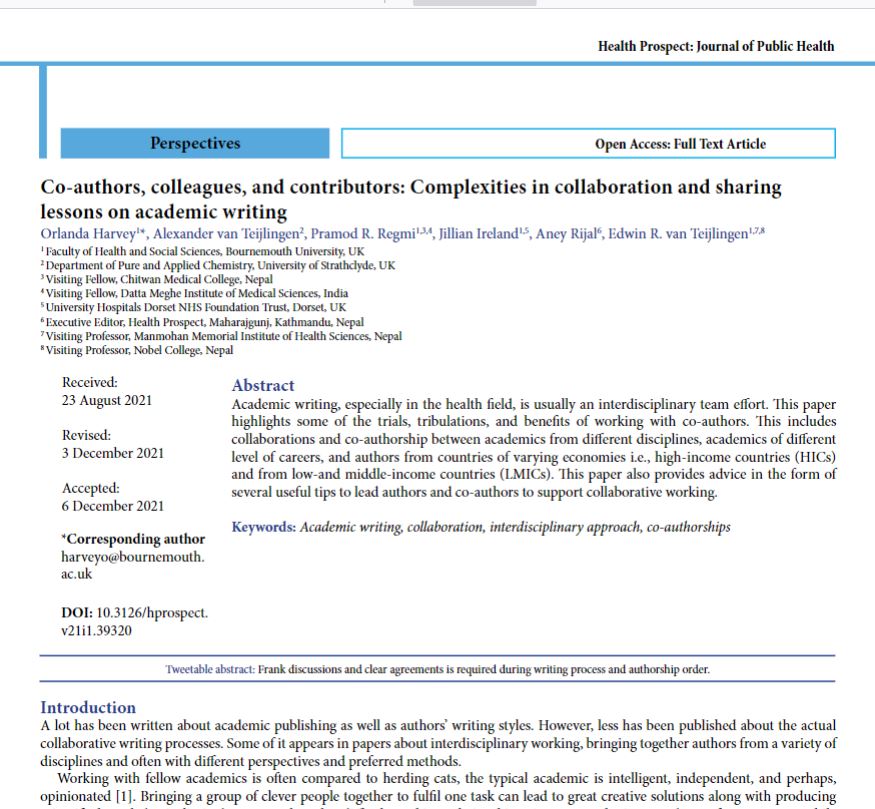
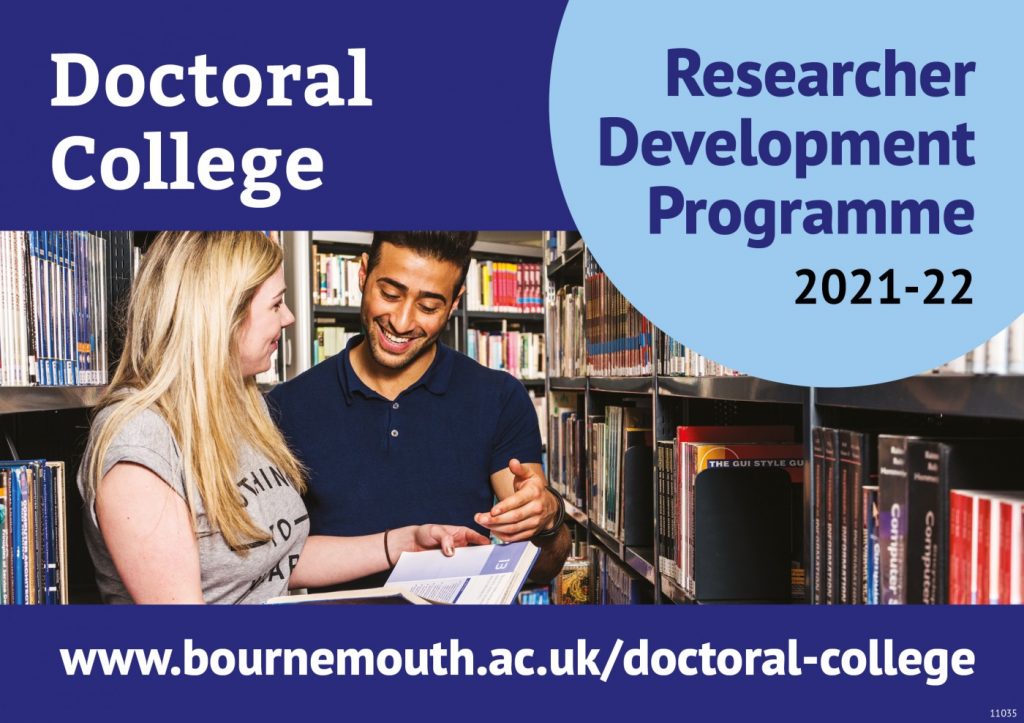
 In summer 2015, we launched the BU Bridging Fund Scheme which aims to provide additional stability to fixed-term researchers who are often employed on short term contacts linked to external funding. This situation may impact on continuity of employment due to breaks in employment, job security and can result in a costly loss of researcher talent for the institution.
In summer 2015, we launched the BU Bridging Fund Scheme which aims to provide additional stability to fixed-term researchers who are often employed on short term contacts linked to external funding. This situation may impact on continuity of employment due to breaks in employment, job security and can result in a costly loss of researcher talent for the institution.
 At Bournemouth University we collaborate with global institutions and organisations through our education, research and practice.
At Bournemouth University we collaborate with global institutions and organisations through our education, research and practice.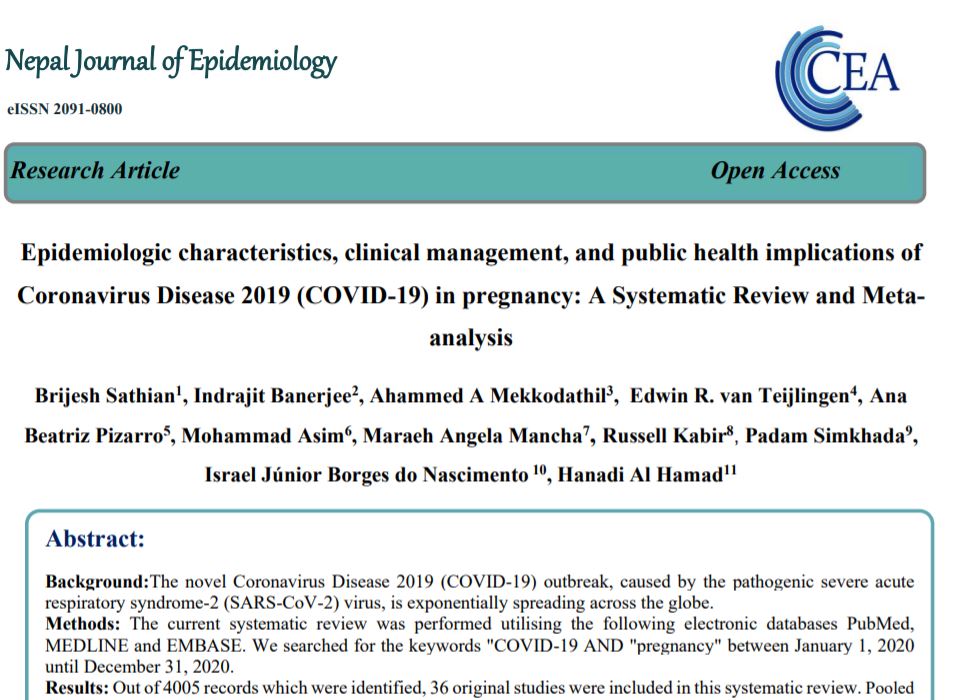 This review covered the published literature on the epidemiology, clinical management and public health prevention aspects of pregnancy and childbirth and coronavirus (COVID-19) up until December 2020. We worked hard and fast to submit the paper as soon as possible after the end of 2020 to be able to publish up-to-date findings. We managed this and submitted the paper on March 5th, the peer-review took some months and so did the making of the revisions. As a result we resubmitted the manuscript of 29 September and we got the acceptance email within a week. We made it into the next issue of the Nepal Journal of Epidemiology which published exactly one year after the data collection period had ended for our systematic review.
This review covered the published literature on the epidemiology, clinical management and public health prevention aspects of pregnancy and childbirth and coronavirus (COVID-19) up until December 2020. We worked hard and fast to submit the paper as soon as possible after the end of 2020 to be able to publish up-to-date findings. We managed this and submitted the paper on March 5th, the peer-review took some months and so did the making of the revisions. As a result we resubmitted the manuscript of 29 September and we got the acceptance email within a week. We made it into the next issue of the Nepal Journal of Epidemiology which published exactly one year after the data collection period had ended for our systematic review.
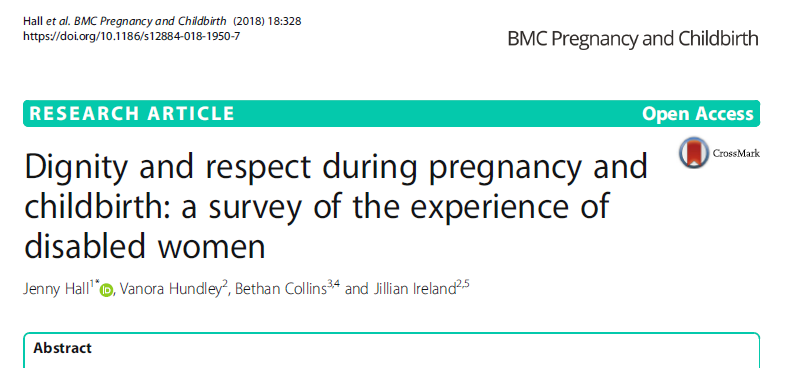
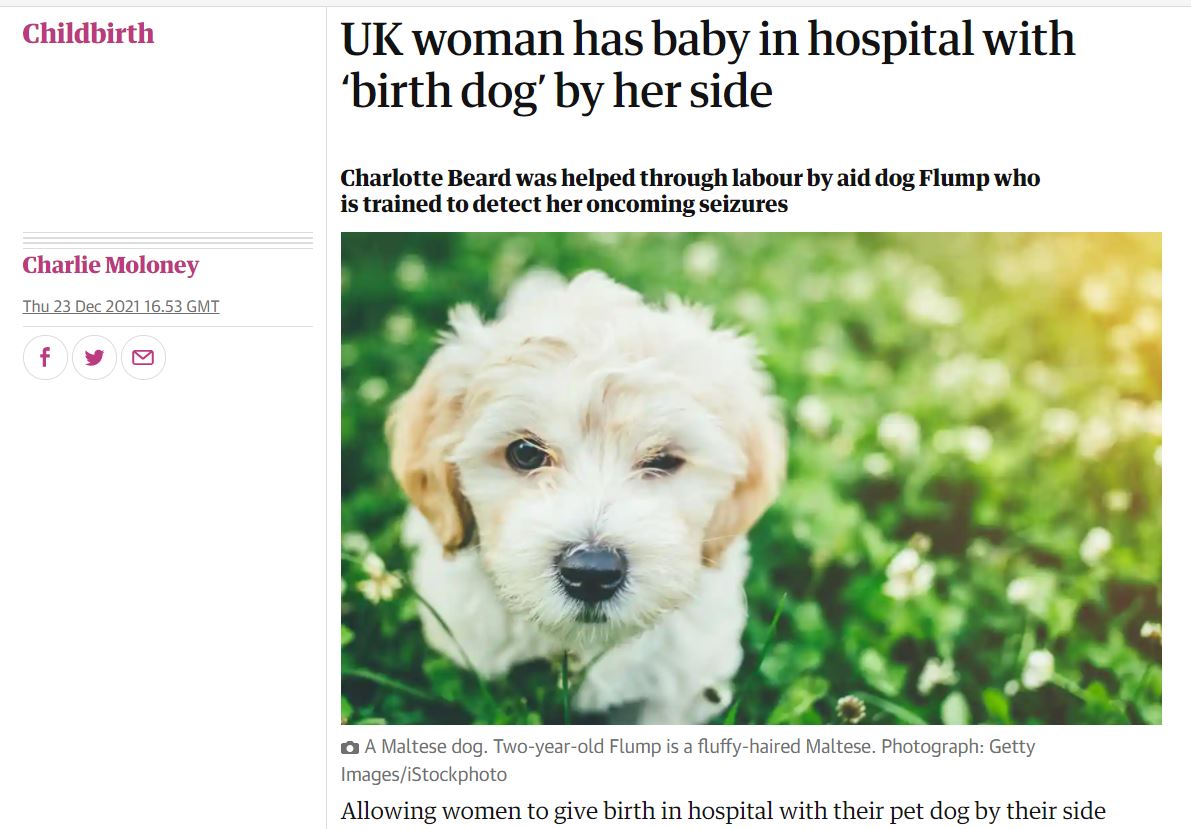
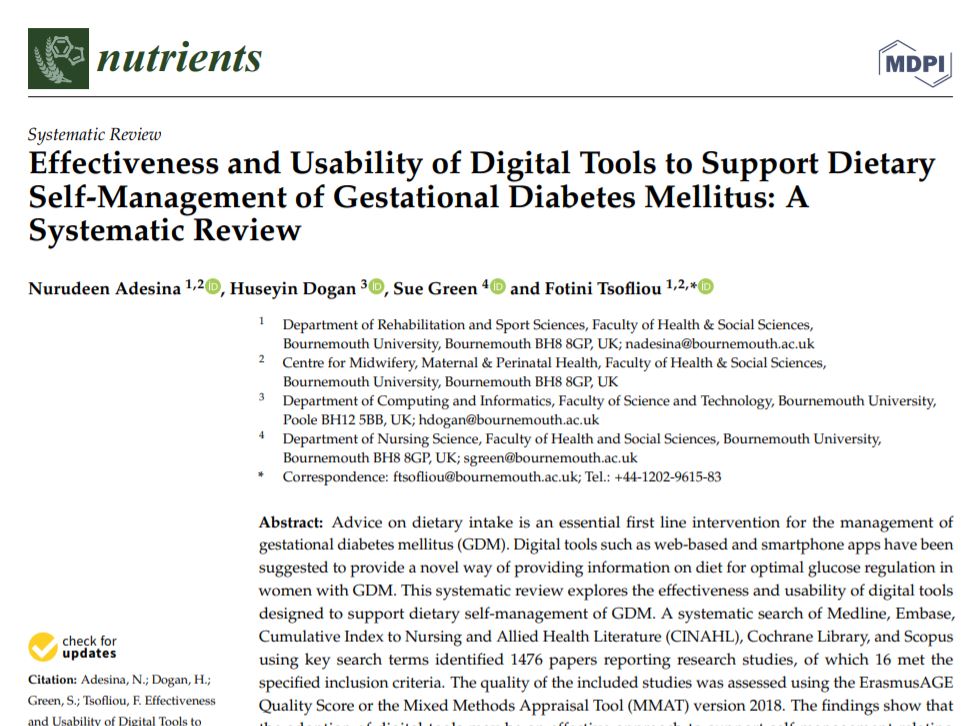
 The Résumé for Research and Innovation (R4RI) is a content-rich alternative to the traditional CV which supports applicants to show how they have made a difference.
The Résumé for Research and Innovation (R4RI) is a content-rich alternative to the traditional CV which supports applicants to show how they have made a difference.
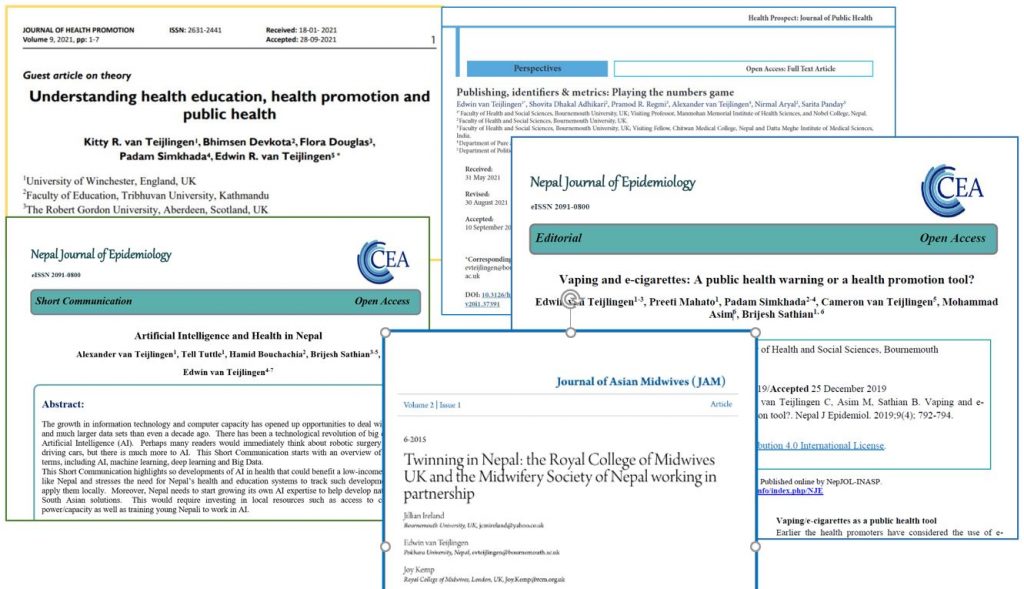

 The
The 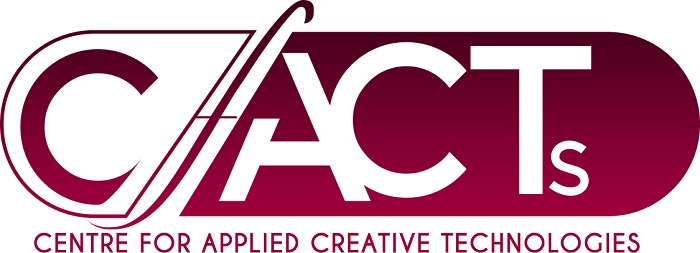
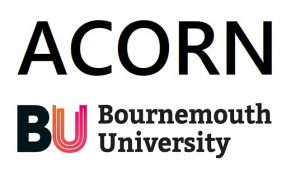 this is a reminder that ACORN Round 4 is closing on 10 December 2021 at 5pm.
this is a reminder that ACORN Round 4 is closing on 10 December 2021 at 5pm.










 New weight change BU paper
New weight change BU paper One week to go! | The 16th Annual Postgraduate Research Conference
One week to go! | The 16th Annual Postgraduate Research Conference Geography and Environmental Studies academics – would you like to get more involved in preparing our next REF submission?
Geography and Environmental Studies academics – would you like to get more involved in preparing our next REF submission? Congratulations to three former BU staff
Congratulations to three former BU staff MSCA Staff Exchanges 2024 Call – internal deadline
MSCA Staff Exchanges 2024 Call – internal deadline Applications are now open for 2025 ESRC Postdoctoral Fellowships!
Applications are now open for 2025 ESRC Postdoctoral Fellowships! Horizon Europe – ERC CoG and MSCA SE webinars
Horizon Europe – ERC CoG and MSCA SE webinars MaGMap: Mass Grave Mapping
MaGMap: Mass Grave Mapping ERC grants – series of webinars
ERC grants – series of webinars